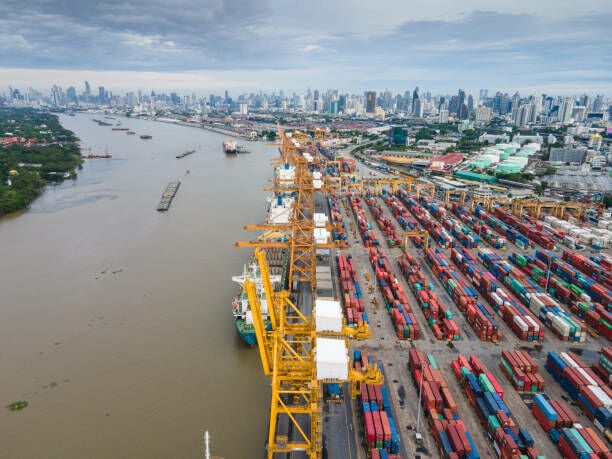Thai export competitiveness declines with focus on rice market

The Bank of Thailand reports a significant decline in Thai export competitiveness, particularly in global rice markets. Over the last 20 years, the market share of rice shipments has dropped by over 50%. This reduction is a result of persistent structural issues in the export and manufacturing sectors, affecting the Thai economy at large.
The bank’s recent report reveals that over 70% of products that hindered export value growth last year are facing decreasing competitiveness and other structural challenges. Agricultural products, including rice, have witnessed a substantial decrease in market share, dropping from 25% in 2003 to the current 13%, reported Bangkok Post.
Furthermore, petrochemical products are impacted by China’s dual circulation strategy. Simultaneously, traditional hard disk drives are being replaced by solid-state drives, which Thai manufacturers lack the expertise to produce.
Thai electronics exports have underperformed, with an average growth of merely 4% over the past ten years. This growth rate is significantly lower than its regional peers such as Vietnam, the Philippines, and Malaysia, which reported export growth rates of 37%, 14%, and 10% respectively.
Domestic goods manufacturing is also facing increased competition from imports, with import shares from China alone rising from 5% to 9% over the same period.
The central bank predicts that exports and manufacturing activities will see moderate growth, aligned with the slow global demand recovery and the softening momentum from the electronics cycle upturn. Still, structural hurdles, especially the worsening export sector competitiveness, would increasingly obstruct growth and limit the benefits from global demand recovery without structural reforms.
In their latest meeting, the Monetary Policy Committee (MPC) voted 5-2 to keep the policy rate at 2.5%, with two members voting for a quarter percentage point cut.
Loan-to-value
The MPC also maintained that the current loan-to-value (LTV) measures are appropriate, despite requests from property developers to the Finance Ministry to ease the LTV measures to boost sector activity. The committee insists that current LTV measures support housing affordability for the majority, with 90% of buyers meeting the criteria and eligible for 100% property value loans without a down payment.
The existing LTV rates in Thailand, between 90-100% for first residences, are significantly more lenient compared to countries like South Korea, Singapore, and New Zealand, where the rates are 50-70%, 75%, and 80% respectively.
Despite these challenges, the housing market is continuing to expand, with an increase in sales and property transfers. The supply is also recovering, with more new residential properties available for sale. The MPC’s report indicates that the real estate business confidence index shows a steady growth outlook.
However, the MPC warns, “LTV loosening could pose risks to financial stability through increased speculation in the real estate sector that drives up prices in some segments and overborrowing by some buyers. The ongoing deleveraging process could be disrupted, with implications for the financial system’s fragilities in the longer term.”
Latest Thailand News
Follow The Thaiger on Google News:


























